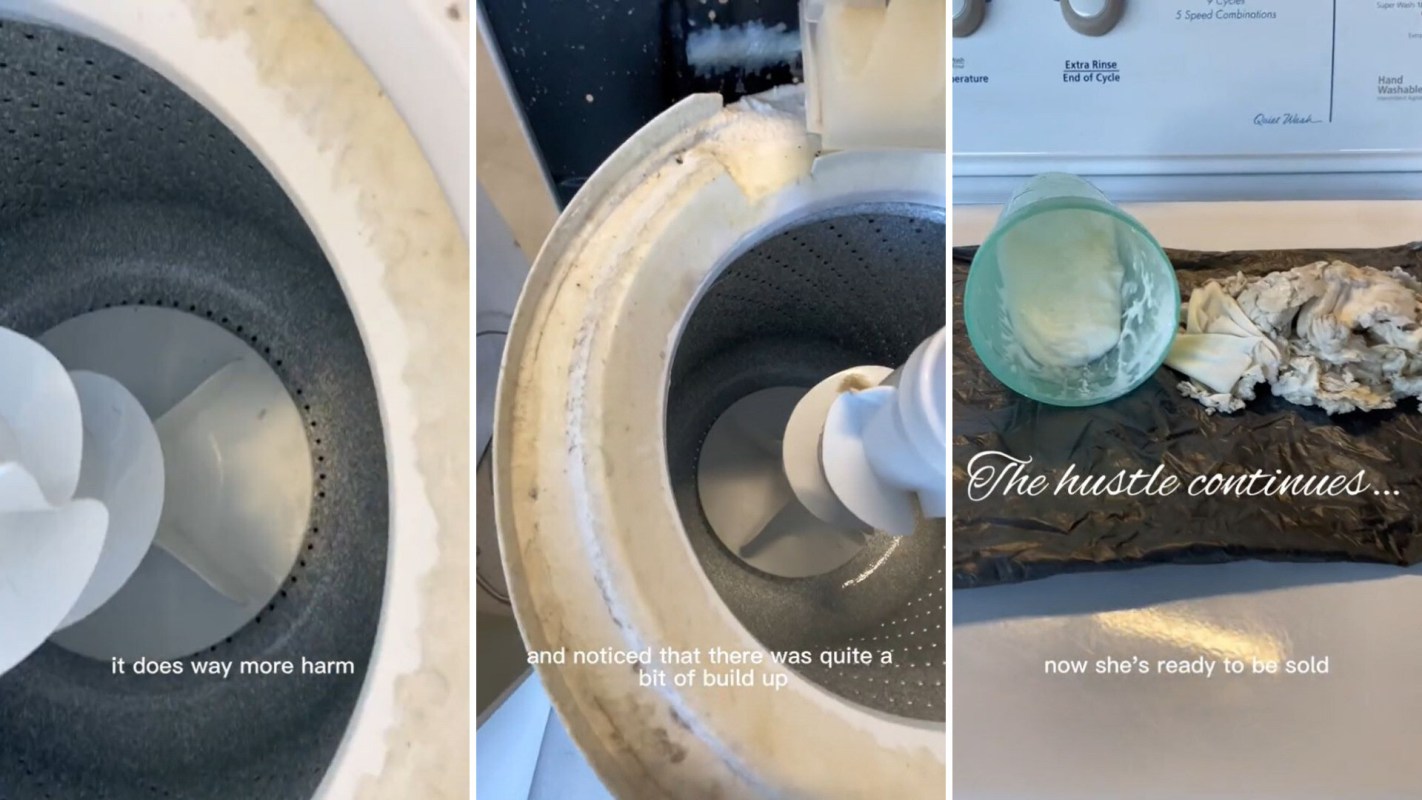It can be easy to use products like fabric softener and never question their impacts on humans or the environment. Yet when a repairman on TikTok revealed the buildup in a washing machine from fabric softener, it raised the question: What types of chemicals are in these products?
The scoop
TikToker Brian (@hustleplusmuscle2) posted an informative video showing the buildup of gunk in a washing machine caused by fabric softener. When he opens the washing machine up, layers of thick gunk can be seen all over the rim, as well as clogging the drain.
@hustleplusmuscle2 Avoid fabric softber at all costs! #sidehustle #fypシ #fyp #makingmoney #washer #entrepreneur ♬ Tainted Love - Instrumental - Re-Recorded - Soft Cell
He gets to work scraping all the old fabric softener up and cleaning the machine, all while explaining that "it does way more harm than any good that it would do for your clothing."
The video ends with Brian explaining that a simple quarter-cup of distilled white vinegar instead of fabric softener is the perfect alternative, and it will leave your clothes fresher and cleaner than ever. And no, it won't make your clothes smell like vinegar.
How it's helping
Brian's hack for safer and more sustainable cleaning products is one of many. Specifically, switching from chemical-heavy cleaning products to natural alternatives can save you money, reduce toxic chemicals from leaching into ecosystems, and eliminate potential health hazards.
One of the reasons fabric softener can be detrimental to human health and the environment is that it can clog septic systems, as shown in the TikTok.
An article from Supeck Septic Services states that fabric softeners are "a petroleum-based cocktail containing a host of chemicals, emulsifiers, fragrances, and artificial colors," and with petroleum being an oil, it's like "pouring fats, oils, and greases down the drain."
If septic systems are impacted and fail, they can contaminate local wells that provide drinking water to homes, as well as local surface water that wildlife rely on, as per the EPA. Such major hazards mean it's not worth using products like fabric softeners that were never intended to work within our septic systems.
Distilled vinegar solution is highly effective in place of fabric softeners — and it's also cheap. White vinegar is something of a magic product for home cleaning. Using vinegar and other household ingredients like dish soap or baking soda, you can create your own, safer versions of Windex, and make old, burnt pans look brand-new without having to replace them.
🗣️ How often do you do laundry each month?
🔘 Only once ☝️
🔘 Twice a month ✌️
🔘 Every week ⏰
🔘 Every few days 🧺
🗳️ Click your choice to see results and speak your mind
What everyone's saying
One commenter asked: "Why vinegar? How does that make your clothes soft and smell good? I'm just asking I'm new to your page." Vinegar, when used in an appropriate amount, neutralizes existing odors, leaving clothes smelling fresh.
Another user joked, "I be all over this mans page and I don't even own a washer or dryer!"
Join our free newsletter for easy tips to save more, waste less, and help yourself while helping the planet.









